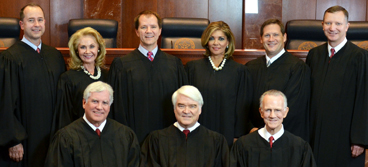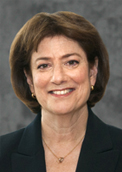© 2015 The Texas Lawbook.
By Janet Elliott
AUSTIN (Sept. 8) – A three-year long dispute over whether Dallas trial lawyer Bill Brewer should be disqualified from a big-dollar international lawsuit because his law firm and its Chilean co-counsel hired a former executive from the opposing side is finally nearing its conclusion.
Lawyers for RSR Corporation told the Supreme Court of Texas in oral arguments last week that the lower courts wrongly removed Bickel & Brewer from the Dallas-based lead smelter’s multimillion-dollar fraud and breach of fiduciary duty lawsuit against its business partner, Inppamet Ltda.

RSR v. Inppamet is now five years old and has been fiercely litigated on three continents. The case features Brewer against Mike Lynn. Both are hard-charging advocates who have openly clashed in court. More than $60 million is at stake.
RSR and Brewer hired former state Supreme Court Justice Harriet O’Neill to file a mandamus petition with the appellate courts claiming that the trial judge overstepped his authority. Bickel & Brewer officially changed its firm name in June to Brewer, Attorneys & Counselors.
The Dallas Court of Appeals rejected RSR’s efforts. The Texas Supreme Court also initially declined to hear the appeal in June 2014, but agreed to take up the case last winter.

Oral arguments last week focused on whether Sobarzo was a whistleblowing fact witness or a side-switching paralegal whose actions triggered disqualification.
O’Neill said the former CFO was the key fact witness on the calculation of fees under an agreement between RSR and Inppamet that allowed Inppamet to manufacture and sell RSR’s anodes.
Sobarzo “at least presented himself to counsel as a whistleblower who wanted to reveal what he described as the illegal activity at Inppamet while he was there,” O’Neill told the justices.
“Doesn’t the fact that Bickel & Brewer hired him specifically for purposes of this litigation cast him in the light of a paralegal or a legal assistant requiring disqualification?” asked Justice John Devine.
O’Neill said the court should look at whether privileged information was shared, an issue that went before a special master who conducted a lengthy hearing into Bickel & Brewer’s activities before rejecting calls that the firm be disqualified. Deborah Hankinson, another former Supreme Court justice, served as the special master.

“We seek to preserve the integrity of the judicial system at the highest level,” said Cortell, a partner with Haynes and Boone. “Only by applying the AHP presumptions here do you accomplish those goals.”
Attorneys Urge Court to Focus on Different Precedents, Conduct Rules
O’Neill said neither the Brewer law firm nor RSR ever had possession of the pen drive, which prompted Justice Phil Johnson to ask whether that mattered in light of the fact that Sobarzo was privy to so much information as Inppamet’s finance officer.
“Facts and subject matter are not privileged,” O’Neill told the justices. “There is no indication that any lawyer-client communications ever were revealed.”
O’Neill urged the court to rely on Meador, a case decided by the Texas Supreme Court eight months before American Home Products. In Meador, the court held that when an attorney receives an opposing party’s privileged information through no wrongdoing, the trial court should consider a variety of factors before disqualifying counsel.
“There’s not a single case that says that when the other side hires this fact witness and takes privileged communications, under that circumstance their disqualification is improper,” Cortell said.
The lawyers also discussed which of two Texas Disciplinary Rules of Professional Conduct should apply in the case. Rule 4.02 allows ex parte contact with an opponent’s former employees while rule 5.03 applies the prohibition on banned contact to legal secretaries, paralegals and other staff of a law firm.
“A former executive with direct knowledge of relevant facts is not legal staff under rule 5.03 and cannot trigger the side-switching paradigm this court applied in American Home Products,” said O’Neill.
Cortell said rule 4.02 does not apply because the Brewer firm “had a million red flags” over a seven-month span they worked with Sobarzo.
“Rather than pull back, invoke the court’s protection, invoke prophylactic measures, they double down on subverting the process,” she said.
O’Neill said it was a travesty that RSR’s counsel was disqualified three months before trial and that the trial court should have considered lesser sanctions, such as prohibiting Sobarzo from testifying.
RSR’s position was supported in an October 2014 amicus letter brief from Linda Eads, who teaches professional responsibility at Southern Methodist University Dedman School of Law. She said the court of appeals extended the American Home presumptive-disqualification standard beyond actual paralegal-type personnel to former-employee witnesses having firsthand knowledge of relevant facts gained in the ordinary course of their non-legal employment.
“Allowing the court of appeals’ decision to stand will chill the judicial system’s truth-seeking function, drive up the costs of litigation and place Texas lawyers at risk of automatic disqualification for engaging in the type of informal discovery that the Texas disciplinary rules allow – and that courts everywhere encourage,” Eads wrote.
© 2015 The Texas Lawbook. Content of The Texas Lawbook is controlled and protected by specific licensing agreements with our subscribers and under federal copyright laws. Any distribution of this content without the consent of The Texas Lawbook is prohibited.
If you see any inaccuracy in any article in The Texas Lawbook, please contact us. Our goal is content that is 100% true and accurate. Thank you.
